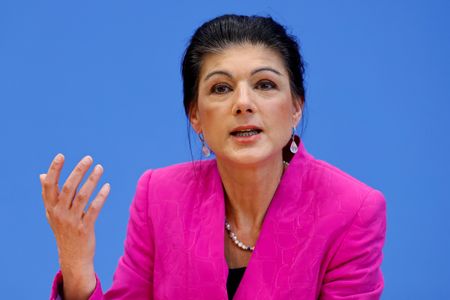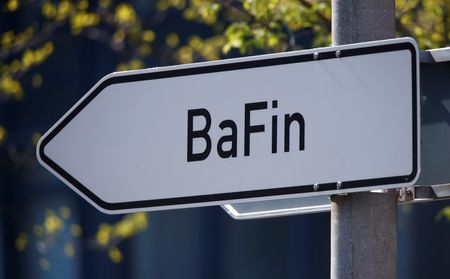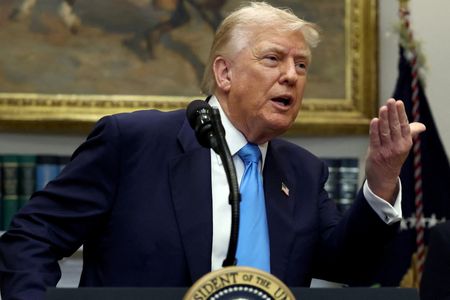By Sarah Marsh
BERLIN (Reuters) – Germany’s political newcomer, the Sahra Wagenknecht Alliance (BSW), said on Monday it might legally challenge the results of the national election after narrowly missing the 5% hurdle to enter parliament.
The leftist populist BSW, which was created last year, scored 4.97% in Sunday’s election, lacking just 13,400 votes to enter parliament in a country where around 60 million people are eligible to cast a ballot.
Some Germans abroad, including the ambassador to Britain, had complained of not receiving paperwork for their postal votes on time, a situation BSW leaders pointed to in a news conference on Monday.
“This raises the question of the legal validity of the election result,” said the BSW’s eponymous leader Sahra Wagenknecht.
“We will examine this and, of course, consult with lawyers, which is why this is only mentioned briefly at the end.”
Wagenknecht said it was not yet clear how many of the 230,000 Germans registered to vote abroad were unable in the end to cast their ballot.
However, even if none of those had been able to vote, and 5% supported the BSW, that would still only be an extra 11,500 votes.
Chairwoman Amira Mohamed Ali said there were also indications there may have been errors during the vote count but said there were high hurdles to contesting an election in Germany.
“We are checking whether it has a chance of success,” she said. “If we see that it does, then we will take the step.”
Any party or person wanting to contest the results of the vote would have to file an election complaint with the Bundestag lower house within two months.
The parliament’s committee for the scrutiny of elections would then review the complaint and decide about a recount, a correction or a re-election in affected areas.
The BSW, created by an exodus from the far-left Left party, performed strongly in elections in eastern Germany last year, making it into two regional governments.
But the Left party’s last-minute surge in the national election to around 9% plus the BSW’s failure to make it into parliament are likely to spell a period of soul-searching within the new party.
(Reporting by Sarah Marsh and Hans-Edzard Busemann; Additional reporting by Kirsti Knolle; Editing by Gareth Jones)











